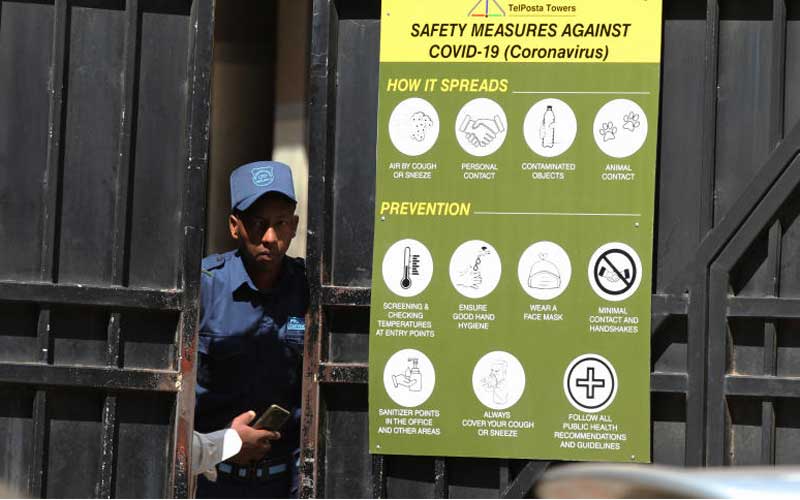×
The Standard e-Paper
Home To Bold Columnists

A security guard at a government building in Nairobi closes the gate on March 20, 2020. Besides providing security, guards can greatly bolster the war against Covid-19. [Elvis Ogina, Standard]
The effects of the coronavirus disease (Covid-19) continue to be felt globally, with the daily rise in number of positive cases. The World Health Organisation (WHO) and Kenya’s Ministry of Health have issued directives to stop the spread of the virus.







